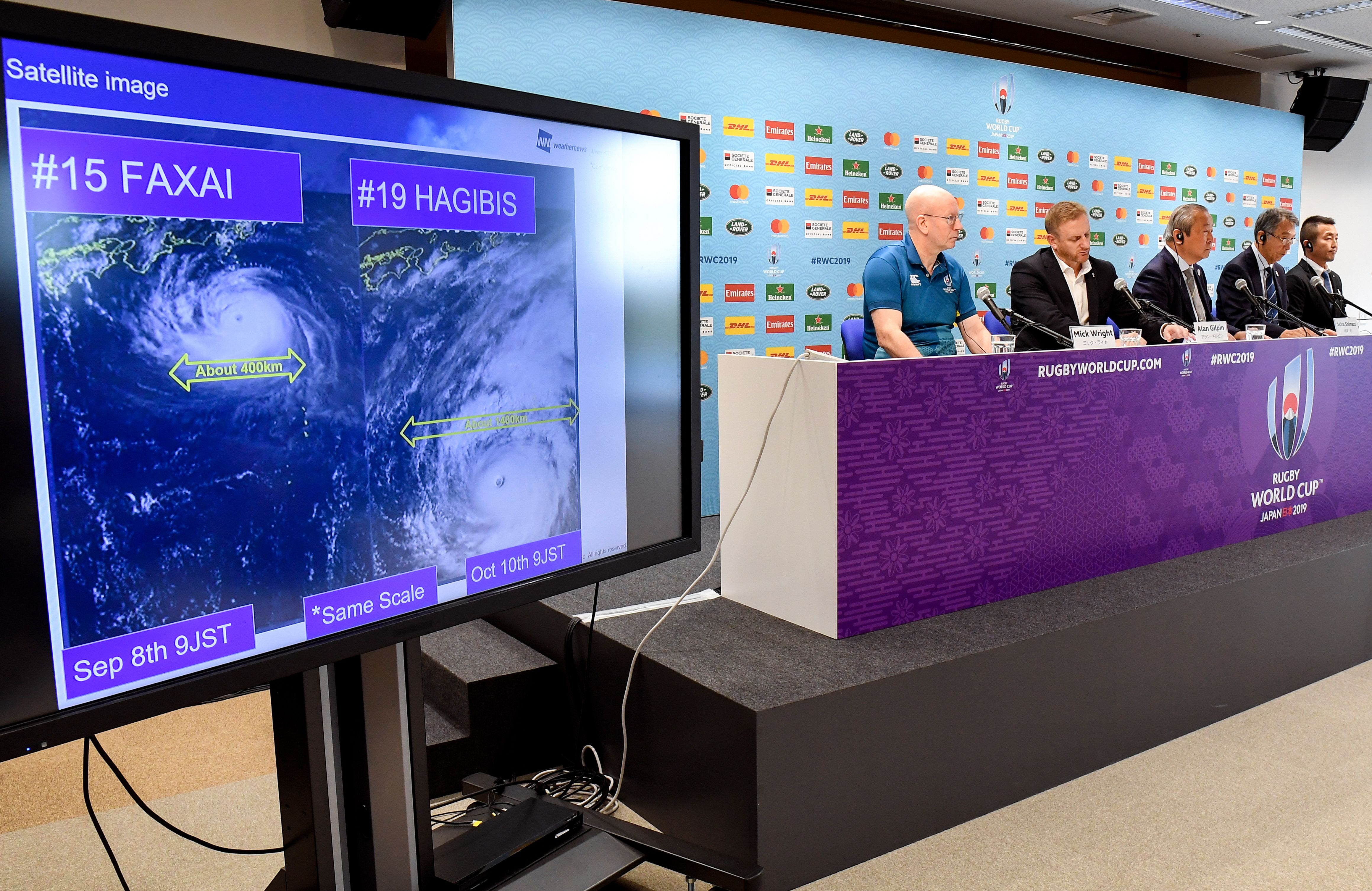Climate change expert Piers Forster says sport has to make changes or risk more shambolic events
Sport Must Wake Up To Climate Change
England coach Eddie Jones struck an upbeat note after England’s 2019 Rugby World Cup match against France on Saturday was cancelled, welcoming extra rest and thanking the “typhoon gods”. Instead he should have thanked our ineffectual tackling of carbon emissions. Make no mistake, Super Typhoon Hagibis bears the hallmarks of climate change.
A storm is considered to have intensified rapidly if it increases wind speed at least 35mph over 24 hours – Hagibis’s intensification was nearly three times this rate. In the space of a day the storm morphed from Ben Youngs to Joe Cokanasiga, feeding off warming oceans that inject typhoons with extra venom.
Research published earlier this year shows that although climate change might not be causing more tropical cyclones, it does increase the wind and rainfall, boosting the power of storms in the Pacific. This is our new reality. As protestors take to the streets across the UK, Japan is rapidly evacuating coastal towns and cities in the line of fire.
There’s a bitter irony that Formula 1, long a bastion for big oil and major car companies, is also having to delay qualifying for the Japanese Grand Prix.
But this is no time for snide remarks or smugness. As the climate crisis deepens nowhere will stay untouched and sport – which many of us watch to escape reality – is already hurting.
Two major reports that the Priestley International Centre for Climate, where I work, has inputted on – Game Changer and Hit for Six – detail how cricket, golf and football are all facing increasing impacts.
Australian cricketing greats Shane Warne and Ian Chappell are among those to read Hit for Six and expressed their personal fears about the climate crisis.

Weather warning: Umpires call off a match because of rain during the Cricket World Cup (Getty Images)
Just as technology and data has revolutionised sport, so too with climate science. Just as coaches can assess to minute detail how far a player has run, so we can now follow the pace of glacier melt, sea level rise and increases in extremes of heat to levels unheard of a few years ago.
Sadly there’s not much need for VAR or slo-mo replays. Like Tomas Lavanini’s shoulder smash on Owen Farrell last weekend – the results are clear to see.
According to a new UN-mandated report, marine heatwaves have become twice as common, hotter and longer-lasting, while ocean waters are losing oxygen and becoming more acidic.
The Greenland and Antarctic Ice Sheets are melting, releasing 400 billion tonnes of water a year, while an area of the Arctic covered by snow each summer is shrinking more than 13% a decade.
The intense heat we saw athletes struggle with at the recent World Athletic Championships in Doha could become the norm in parts of the planet – and governing bodies need to wake up to this threat. Unless sport adapts on the field and changes its stance off the field, administrators will increasingly find themselves at the mercy of the elements.
RELATED RUGBY WORLD CUP CONTENT
What Is A Typhoon?
Typhoon Hagibis has wreaked havoc on the Rugby…
England and New Zealand matches called off as Japan braces for Typhoon Hagibis
England and New Zealand matches called off as…
Reaction to cancellation of Rugby World Cup games
How coaches, players and pundits reacted to the…
Opinion: A question of integrity at Rugby World Cup
Bending the rules for Scotland v Japan would…
F1 talks a good game about leading development of lightweight materials and hybrid engines, but it’s a giant gas-guzzling advert for the world’s largest oil and gas companies.
FIFA and UEFA publish nice sustainability reports every year, but World Cups sponsored by Gazprom and a 2020 Euros that may be the most carbon intensive yet are not great signs.
World Rugby needs to reflect on this typhoon once it has passed and work out how it can support Pacific Islands whose talent it relies on but who are poorly equipped to deal with storms and rising sea levels.
It’s time for them to listen to the youth on the streets. These are their future stars, pundits and customers. And to paraphrase Greta Thunberg, they will not forgive them if they fail.
Sport has to change to be both zero-carbon and resilient to future warming, and so too do the countries that host it.
As Bank of England governor Mark Carney warned in a speech to Japanese business leaders this week: “Japan is already at the sharp end of a new pattern of devastating extreme weather events.”
What makes the typhoon hitting Japan more ironic is that Tokyo is a major coal funder in SE Asia. This is – to an extent – a storm and a disaster of its own making.
With Japan still heavily invested in coal, the most dangerous of fossil fuels, this must be a wake-up call to Tokyo that continuing down this track has a wide range of debilitating consequences.
Piers Forster is Director of the Priestley International Centre for Climate at the University of Leeds and is coordinating lead author for the IPCC sixth assessment report.
Keep track of events in Japan via our Rugby World Cup homepage.
Follow Rugby World magazine on Facebook, Instagram and Twitter.









